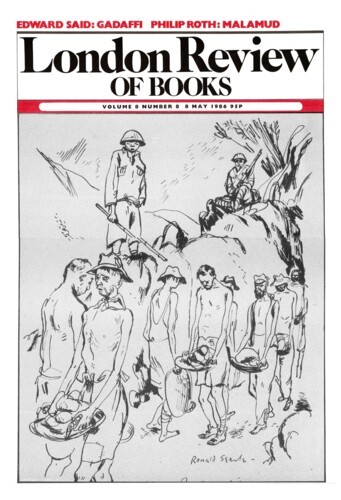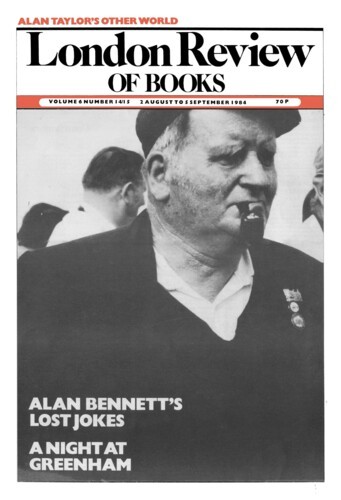Richard Rorty
Richard Rorty, whose books included Philosophy and the Mirror of Nature and Truth and Progress, was professor emeritus of comparative literature and philosophy at Stanford University. He died in 2007.
The Contingency of Selfhood
Richard Rorty, 8 May 1986
As I was starting to write this I came across a poem by Philip Larkin, the last part of which reads:
And once you have walked the length of your mind, what You command is as clear as a lading-list. Anything else must not, for you, be thought To exist.
And what’s the profit? Only that, in time We half-identify the blind impress All our behavings bear, may trace it home. But to...
Making truth
17 April 1986
The Contingency of Language
Richard Rorty, 17 April 1986
About two hundred years ago, the idea that A truth was made rather than found began to take hold of the imagination of Europe. The French Revolution had shown that the whole vocabulary of social relations, and the whole spectrum of social institutions, could be replaced almost overnight. This inspired a new sort of politics – revolutionary, utopian politics, the sort of political thought which sets aside questions about both the will of God and the nature of man and dreams of creating a new kind of human being. Simultaneously, the Romantic poets were showing what can happen when art is no longer thought of as imitation, but rather as self-creation. These poets made it plausible for art to claim the place in culture traditionally held by religion and philosophy, the place which the Enlightenment had claimed for science.
Life at the end of inquiry
Richard Rorty, 2 August 1984
In theory, it is the highest virtue of the philosopher to be constantly receptive to criticism, always willing to abandon his own views upon hearing a better argument. In practice, students tend to become exasperated when an important philosopher changes his mind. It suits their doxographic purposes best to use the philosopher’s name to denote the monolithic set of doctrines which initially made him famous. Bertrand Russell is an example of an important and influential philosopher who changed his mind several times and thereby induced exasperation. Hilary Putnam is another. Just when people have finished writing a devastating critique of Putnam, they discover that Putnam has written a similar critique of his own previous views. This refusal to serve as an unmoving target has sometimes led to attempts to dismiss him as a reed shaken by every new wind of doctrine. But such attempts fail, for Putnam is one of the most vigorous and thoughtful representatives of the second generation of analytic philosophers.
Pieces about Richard Rorty in the LRB
Strenuous Unbelief: Richard Rorty
Jonathan Rée, 15 October 1998
Back in the Sixties, before he became the bad boy of American philosophy, Richard Rorty struck his colleagues as a safe and promising young man. His first book, published in 1967, was an...
Getting it right
Bernard Williams, 23 November 1989
An energetic thinker with some original ideas may understandably rebel against the oppressive demand to get it right, especially when the demand comes, as it often does, from cautious and...
Liberation Philosophy
Hilary Putnam, 20 March 1986
This volume is advertised as ‘confronting the current debate between philosophy and its history’. What it turns out to contain is a series of lectures with the general title...
Conversations with Rorty
Paul Seabright, 16 June 1983
In the opening pages of Gibbon’s Autobiography, there is an entertaining account of a visit to Virginia in 1659 by his ancestor Matthew Gibbon: In this remote...
Alasdair MacIntyre on the claims of philosophy
Alasdair MacIntyre, 5 June 1980
The concerns of academic philosophy are to some degree the concerns of everybody. At the same time, they often appear to plain pre-philosophical men and women – including those perhaps not...
Read anywhere with the London Review of Books app, available now from the App Store for Apple devices, Google Play for Android devices and Amazon for your Kindle Fire.
Sign up to our newsletter
For highlights from the latest issue, our archive and the blog, as well as news, events and exclusive promotions.



